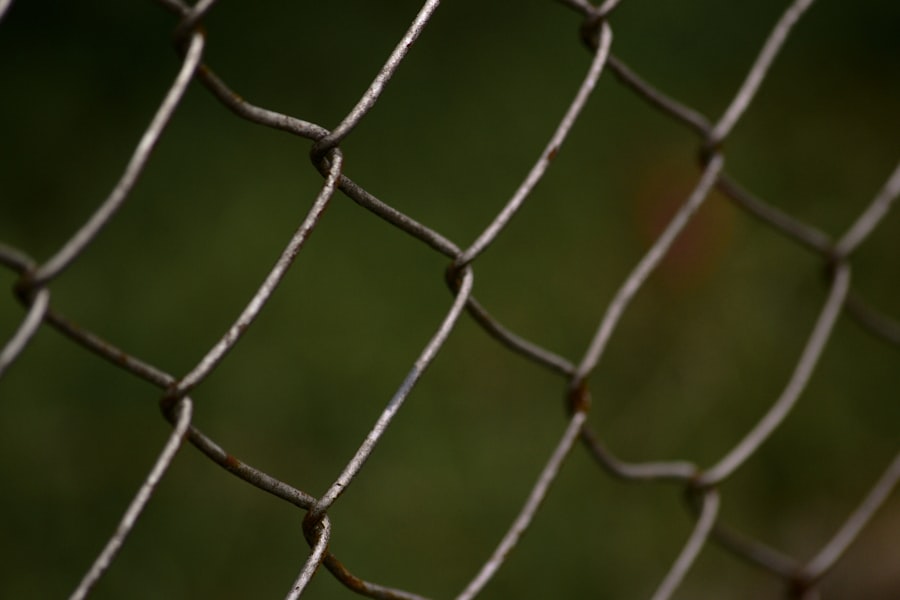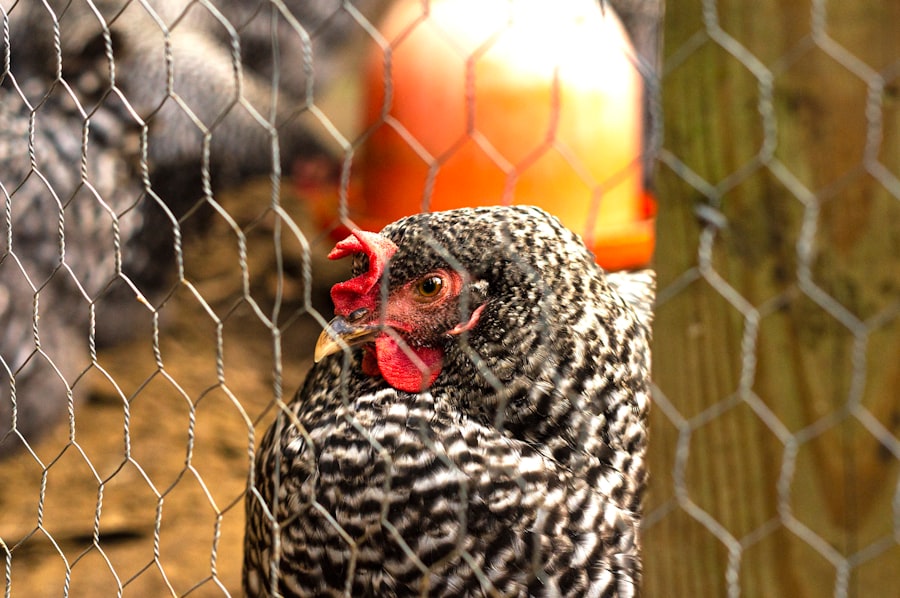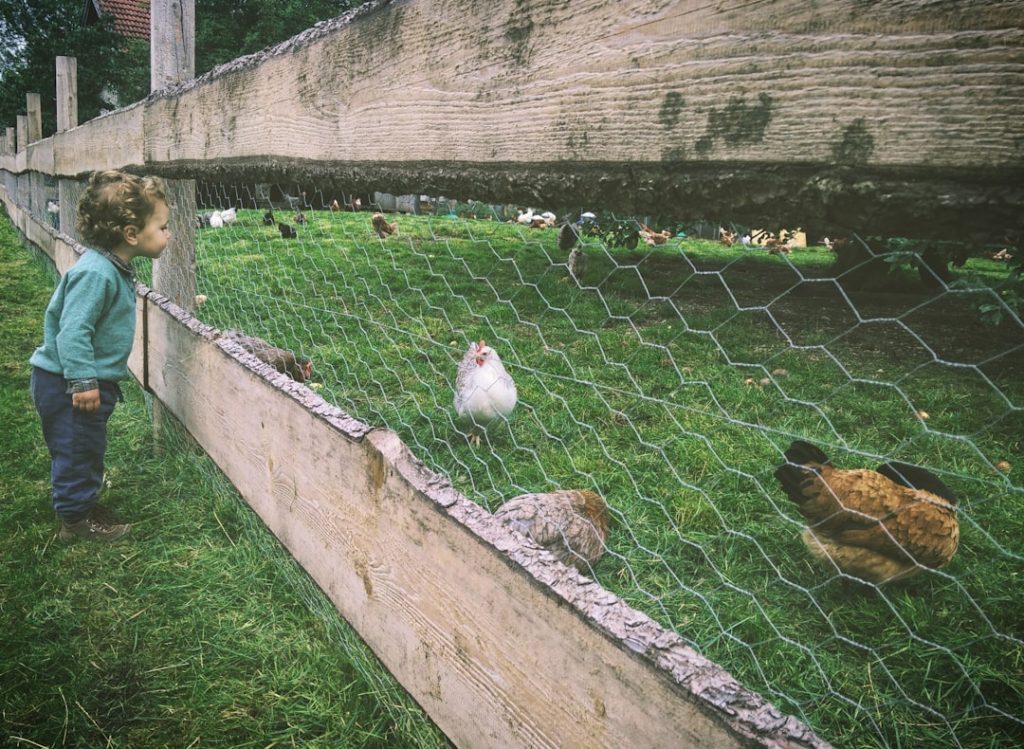Chickens entering a neighboring property can be a source of frustration for homeowners. Several factors may contribute to this behavior. Inadequate fencing or boundaries on the chicken owner’s property can allow the birds to roam freely.
Chickens may be attracted to neighboring yards due to the presence of food, water, or shelter. They may also be seeking suitable nesting areas or simply exploring their environment. When addressing this issue with neighbors, it’s important to consider these potential causes to develop an effective, long-term solution.
The breed and behavior of the chickens also play a role in their tendency to wander. Some breeds are naturally more curious and prone to exploration, while others are more territorial and less likely to stray from their home. Understanding the specific characteristics of the chickens involved can provide valuable insight into developing appropriate preventive measures.
By identifying the underlying reasons for the chickens’ behavior, property owners can work together to implement solutions that are both effective and humane, ensuring a harmonious living environment for all parties involved.
Table of Contents
- 1 Establishing boundaries: Setting up physical barriers to prevent chickens from entering your yard
- 2 Deterrents and repellents: Exploring non-harmful methods to discourage chickens from entering your yard
- 3 Communicating with your neighbor: Discussing the issue with your neighbor and finding a mutually beneficial solution
- 4 Creating a safe space for your own pets and plants: Implementing measures to protect your yard from potential damage caused by chickens
- 5 Seeking legal advice: Understanding your rights and responsibilities when dealing with neighbor’s chickens on your property
- 6 Finding a long-term solution: Exploring sustainable methods to prevent chickens from entering your yard in the future
- 7 FAQs
- 7.1 What are some effective ways to keep neighbors’ chickens out of my yard?
- 7.2 Is it legal to keep chickens out of my yard?
- 7.3 How can I talk to my neighbors about keeping their chickens out of my yard?
- 7.4 Are there any natural deterrents to keep chickens out of my yard?
- 7.5 What are the potential risks of having neighbors’ chickens in my yard?
Key Takeaways
- Understanding the problem: Identify if your neighbor’s chickens are entering your yard due to lack of proper fencing or other reasons such as food availability or shelter.
- Establishing boundaries: Install physical barriers like fences or chicken wire to prevent chickens from entering your yard.
- Deterrents and repellents: Use non-harmful methods such as motion-activated sprinklers or natural repellents like citrus peels to discourage chickens from entering your yard.
- Communicating with your neighbor: Have a respectful conversation with your neighbor to address the issue and find a solution that works for both parties.
- Creating a safe space for your own pets and plants: Implement measures such as raised garden beds or pet enclosures to protect your yard from potential damage caused by chickens.
- Seeking legal advice: Understand your rights and responsibilities regarding property boundaries and animal control laws when dealing with neighbor’s chickens on your property.
- Finding a long-term solution: Explore sustainable methods such as community coop programs or professional animal control services to prevent chickens from entering your yard in the future.
Establishing boundaries: Setting up physical barriers to prevent chickens from entering your yard
Fencing Options
When considering fencing options, it’s important to choose materials and designs that are suitable for deterring chickens. For example, chicken wire or mesh fencing can be effective in preventing the chickens from crossing over into your yard while still allowing for visibility and airflow. Additionally, ensuring that the fencing is properly secured and extends below ground level can further discourage the chickens from attempting to dig or squeeze through.
Natural Barriers
Another option for establishing boundaries is the use of natural barriers such as hedges or shrubs. These can act as a visual and physical deterrent for the chickens, making it less appealing for them to enter your yard. Planting dense and thorny vegetation can also serve as a natural barrier, as it can be uncomfortable for the chickens to navigate through.
Strategic Placement
When implementing physical barriers, it’s important to consider the layout of your property and any potential access points that the chickens may exploit. By strategically placing barriers in these areas, you can effectively prevent the chickens from entering your yard while maintaining a visually appealing landscape.
Deterrents and repellents: Exploring non-harmful methods to discourage chickens from entering your yard

In addition to physical barriers, there are non-harmful methods that can be used to deter and repel your neighbor’s chickens from entering your yard. One option is the use of visual deterrents such as scarecrows or reflective objects that can startle the chickens and discourage them from approaching. These visual deterrents can be strategically placed around your yard to create an environment that is less inviting for the chickens.
Another non-harmful method is the use of sound deterrents, such as wind chimes or motion-activated devices that emit noise when the chickens approach. These auditory cues can disrupt the chickens’ behavior and make them less likely to enter your yard. Furthermore, there are natural repellents that can be used to discourage the chickens from entering your yard.
For example, spreading citrus peels or coffee grounds around the perimeter of your yard can create a scent barrier that is unappealing to the chickens. Additionally, certain plants and herbs such as lavender, mint, or marigolds have natural repellent properties that can deter chickens and other pests. By incorporating these non-harmful methods into your yard maintenance routine, you can effectively discourage the chickens from entering while promoting a safe and environmentally friendly environment.
Communicating with your neighbor: Discussing the issue with your neighbor and finding a mutually beneficial solution
When dealing with a situation involving your neighbor’s chickens entering your yard, open and respectful communication is key to finding a mutually beneficial solution. It’s important to approach the conversation with empathy and understanding, as your neighbor may not be aware of the impact their chickens are having on your property. Start by expressing your concerns in a calm and non-confrontational manner, and be prepared to listen to their perspective as well.
By fostering an open dialogue, you can work together to address the issue in a way that is considerate of both parties’ needs. During the conversation, it’s important to discuss potential solutions that can effectively prevent the chickens from entering your yard while still allowing them to roam freely on your neighbor’s property. This may involve collaborating on the installation of physical barriers or implementing deterrents that are suitable for both properties.
Additionally, establishing clear boundaries and responsibilities regarding the care and containment of the chickens can help prevent future conflicts. By working together with your neighbor, you can find a solution that respects both parties’ rights and promotes a harmonious relationship within the community.
Creating a safe space for your own pets and plants: Implementing measures to protect your yard from potential damage caused by chickens
In addition to preventing your neighbor’s chickens from entering your yard, it’s important to implement measures that protect your own pets and plants from potential damage. If you have pets or livestock of your own, it’s crucial to ensure that they are safely contained within your property to prevent any conflicts with the roaming chickens. This may involve reinforcing existing fencing or creating designated areas for your pets to roam freely without encountering the chickens.
Additionally, taking proactive measures such as providing secure shelter and food for your pets can help minimize any potential interactions with the chickens. When it comes to protecting your plants and garden from the chickens, there are several strategies that can be employed. Utilizing raised garden beds or containers can help keep your plants out of reach from the chickens, while still allowing you to cultivate a thriving garden.
Furthermore, incorporating natural deterrents such as mulch or gravel around your plants can create an unappealing environment for the chickens to forage in. By taking these proactive measures, you can create a safe and secure space for your own pets and plants while effectively preventing any potential damage caused by your neighbor’s chickens.
Seeking legal advice: Understanding your rights and responsibilities when dealing with neighbor’s chickens on your property

Familiarizing Yourself with Local Ordinances and Regulations
In some cases, dealing with a situation involving your neighbor’s chickens entering your yard may require seeking legal advice to understand your rights and responsibilities. It’s important to familiarize yourself with local ordinances and regulations regarding livestock and animal control in your area, as these laws may dictate how the situation should be addressed.
Gathering Relevant Documentation and Evidence
When seeking legal advice, it’s important to gather any relevant documentation or evidence related to the issue, such as photographs of the chickens entering your yard or records of any damage caused. This information can help support your case and provide clarity on how best to proceed. Additionally, understanding any potential liability or recourse available to you as a property owner is essential in finding a resolution that aligns with legal standards.
Seeking Legal Advice for a Comprehensive Understanding
By seeking legal advice, you can gain a comprehensive understanding of your rights and responsibilities when dealing with your neighbor’s chickens on your property. Consulting with a legal professional who specializes in property rights and animal law can provide valuable insight into how to navigate the situation in a way that is fair and lawful.
Finding a long-term solution: Exploring sustainable methods to prevent chickens from entering your yard in the future
Ultimately, finding a long-term solution to prevent your neighbor’s chickens from entering your yard requires exploring sustainable methods that address the root cause of the issue. This may involve collaborating with your neighbor to establish clear boundaries and containment measures that effectively prevent the chickens from wandering onto your property. Additionally, implementing sustainable deterrents such as natural barriers or non-harmful repellents can create an environment that is less inviting for the chickens while promoting a safe and eco-friendly landscape.
Furthermore, considering long-term solutions such as community education and outreach can help raise awareness about responsible animal ownership and property boundaries. By fostering a sense of mutual respect and understanding within the community, you can work towards preventing similar conflicts from arising in the future. Additionally, staying proactive in maintaining physical barriers and implementing deterrents can help ensure that your yard remains protected from potential intrusions by your neighbor’s chickens.
By exploring sustainable methods and promoting open communication within the community, you can find a long-term solution that respects both parties’ rights and promotes a harmonious living environment for all involved.
If you’re looking for more information on keeping chickens, you might want to check out this article on turning a shed into a chicken coop. It offers helpful tips and advice on creating a safe and comfortable space for your feathered friends.
FAQs
What are some effective ways to keep neighbors’ chickens out of my yard?
Some effective ways to keep neighbors’ chickens out of your yard include installing a fence, using chicken wire or netting, using motion-activated sprinklers, and planting chicken-resistant plants.
Is it legal to keep chickens out of my yard?
The legality of keeping chickens out of your yard depends on local ordinances and regulations. It’s important to check with your local government or homeowners’ association to understand the rules regarding keeping chickens out of your yard.
How can I talk to my neighbors about keeping their chickens out of my yard?
When talking to your neighbors about keeping their chickens out of your yard, it’s important to approach the conversation calmly and respectfully. Clearly communicate the issue and work together to find a solution that works for both parties.
Are there any natural deterrents to keep chickens out of my yard?
Some natural deterrents to keep chickens out of your yard include using citrus peels, coffee grounds, or vinegar around the perimeter of your yard. Chickens tend to avoid these strong scents.
What are the potential risks of having neighbors’ chickens in my yard?
Having neighbors’ chickens in your yard can pose risks such as damage to plants and landscaping, spreading of diseases, and attracting pests. It’s important to address the issue to maintain a healthy and peaceful environment.
Meet Walter, the feathered-friend fanatic of Florida! Nestled in the sunshine state, Walter struts through life with his feathered companions, clucking his way to happiness. With a coop that’s fancier than a five-star hotel, he’s the Don Juan of the chicken world. When he’s not teaching his hens to do the cha-cha, you’ll find him in a heated debate with his prized rooster, Sir Clucks-a-Lot. Walter’s poultry passion is no yolk; he’s the sunny-side-up guy you never knew you needed in your flock of friends!







